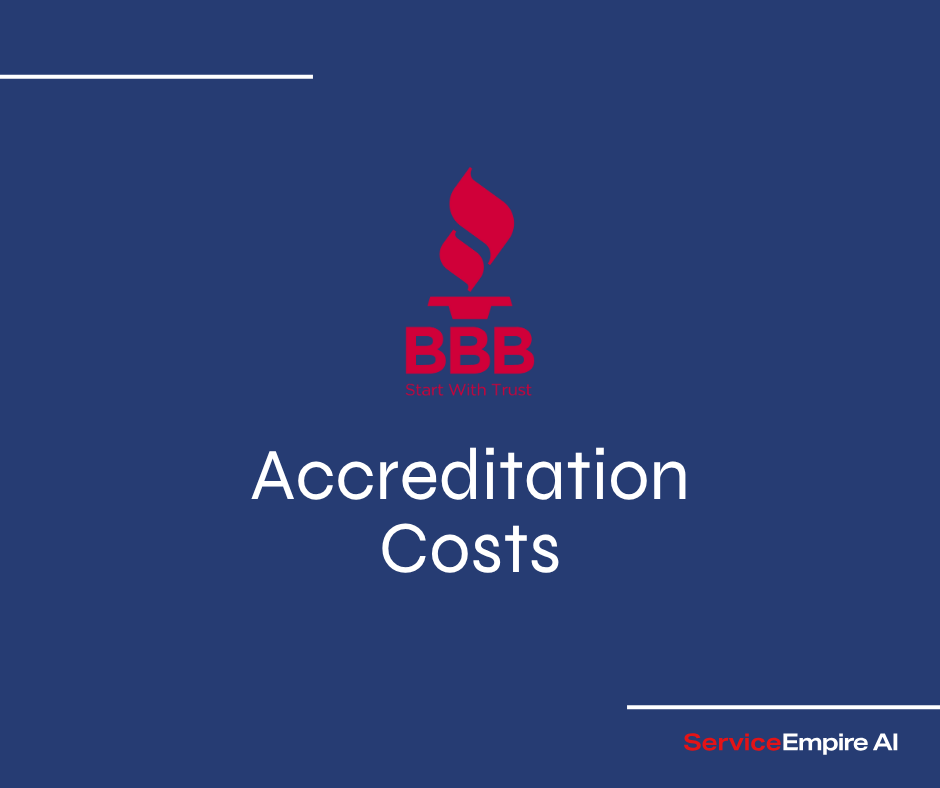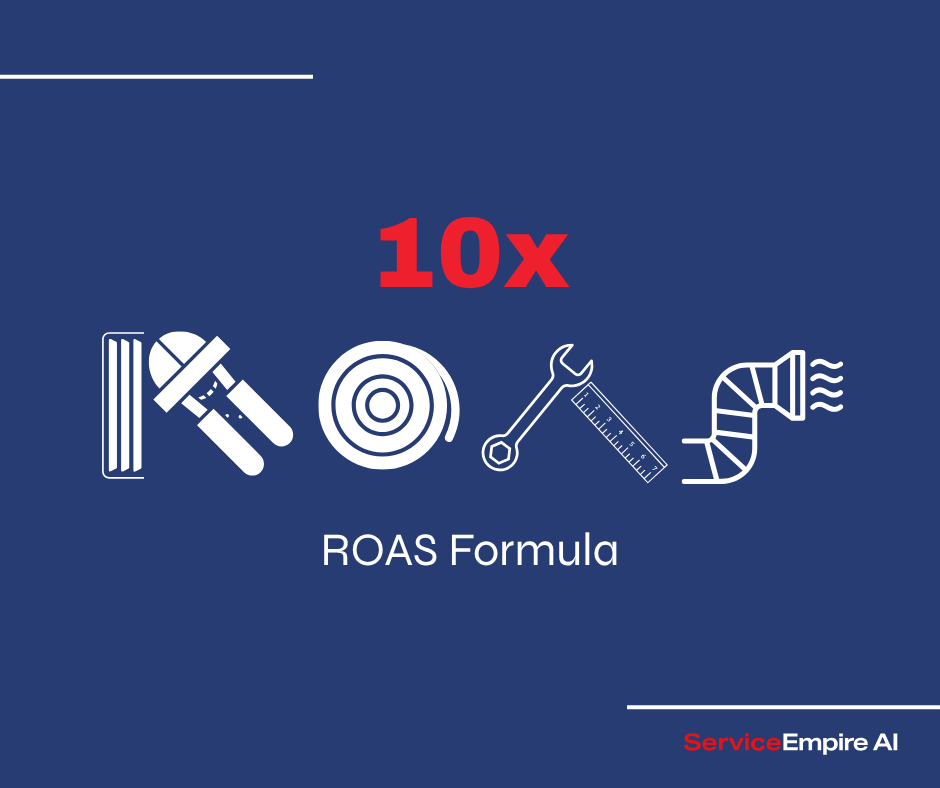
Introduction
In today’s over-hyped markets, building trust with customers is more important than ever. One of the best-known ways to show your business is trustworthy is by getting accredited by the Better Business Bureau (BBB), which has reviewed businesses for over 100 years.
Many business owners see the value in BBB accreditation but often wonder how much it costs and if it’s worth it. The price depends on your business size, location, and revenue, so it’s important to know what you’re paying for.
This article explains the full cost of BBB accreditation—from applying to renewing—and helps you decide if it’s a smart investment for your business.
What is BBB Accreditation?
Before diving into costs, it's important to understand exactly what BBB accreditation entails and how it differs from simply being listed in the BBB directory.
Definition and Purpose
BBB accreditation is a formal affiliation program that allows businesses to associate with the Better Business Bureau organization after meeting specific standards of trust. Accredited businesses commit to the BBB's eight principles
1. Build Trust
2. Advertise Honestly
3. Tell the Truth
4. Be Transparent
5. Honor Promises
6. Be Responsive
7. Safeguard Privacy
8. Embody Integrity
These standards are designed to promote ethical business practices and consumer confidence in the marketplace.
BBB Listing vs. Accreditation
There's a crucial distinction between having a BBB listing and being BBB accredited
BBB Listing
BBB Accreditation
Historical Context
The Better Business Bureau was founded in 1912 as a non-profit organization focused on advancing marketplace trust. The accreditation program evolved as a way for ethical businesses to distinguish themselves from less scrupulous competitors. Today, the BBB network consists of 100+ independently incorporated local organizations serving communities across North America, with approximately 5.5M businesses in their database and 400K fully accredited. (Stats from BBB Website)
Accreditation Statistics
According to the BBB's own data
BBB Accreditation Cost Structure
The fee structure for BBB accreditation follows a variable model based primarily on company size as measured by number of employees, though other factors also influence the final price.
Base Fee Explanation
BBB accreditation operates on an annual fee model, typically charged as a lump sum at the beginning of your membership term. This fee is considered your "dues" and is structured as a recurring membership investment rather than a one-time payment.
The base fee covers
Company Size Influence on Pricing
Employee count is the primary determinant of BBB accreditation cost. The general structure follows this pattern
These ranges represent national averages and can vary significantly based on other factors.
Revenue-Based Adjustments
While employee count forms the foundation of pricing, annual revenue also influences accreditation costs. Businesses with higher revenue may face higher fees even if their employee count is relatively low. For example
Geographic Location Price Variations
BBB accreditation costs vary by location because each BBB office operates as an independent organization with its own fee structure. Generally
The variation between the most expensive and least expensive regions can be as much as 40-50% for similarly sized businesses.
Multi-Location Business Pricing
Businesses with multiple locations face additional considerations
Industry-Specific Factors
Certain industries may face adjusted fee structures
Breaking Down the Numbers: Exact Fee Ranges
While the BBB doesn't publish a national fee schedule due to regional variations, we can provide detailed ranges based on research and direct quotes from multiple BBB offices.
Small Business (1-5 employees)
Annual Fee Range: $500-$1,000
Typical Breakdown:
- Sole proprietors: $500-$650
- 2-3 employees: $600-$800
- 4-5 employees: $700-$1,000
Industry Variations:
- Retail: Lower end of range
- Home services/contractors: Higher end of range
- Professional services: Mid-range
Sample Quote: A small accounting firm with 3 employees in a mid-sized Midwestern city might pay approximately $675 annually.
Medium Business (6-50 employees)
Annual Fee Range: $1,000-$3,000
Typical Breakdown:
- 6-10 employees: $1,000-$1,500
- 11-25 employees: $1,500-$2,200
- 26-50 employees: $2,200-$3,000
Industry Variations:
- Manufacturing: Lower-mid range
- Healthcare: Mid-high range
- Construction: Higher end of range
Sample Quote: A manufacturing company with 18 employees in the Southeast might pay approximately $1,800 annually.
Large Business (51-150 employees)
Annual Fee Range: $3,000-$6,000
Typical Breakdown:
- 51-75 employees: $3,000-$4,000
- 76-100 employees: $4,000-$5,000
- 101-150 employees: $5,000-$6,000
Industry Variations:
- Technology: Mid-range
- Auto dealers: Higher end of range
- Hospitality: Lower-mid range
Sample Quote: A regional restaurant chain with 90 employees might pay approximately $4,500 annually.
Enterprise Business (151+ employees)
Annual Fee Range: $6,000-$12,000+
Typical Breakdown:
- 151-300 employees: $6,000-$8,000
- 301-500 employees: $8,000-$10,000
- 501+ employees: $10,000-$12,000+
Industry Variations:
- Financial services: Higher end of range
- Retail chains: Mid-high range
- Manufacturing: Lower-mid range
Sample Quote: A regional financial services firm with 275 employees might pay approximately $7,500 annually.
Geographic Cost Variation Examples
BBB Accreditation Application Process
Understanding the application process helps businesses prepare for accreditation and budget appropriately.
Step-by-Step Application Walkthrough
- Initial Contact: Submit inquiry through the BBB website or contact your local BBB office
- Pre-qualification: BBB representative evaluates basic eligibility
- Application Submission: Complete formal application with business information
- Documentation: Provide required business documents
- Background Check: BBB reviews complaint history, legal issues, and licensing
- Standards Review: Evaluation against BBB accreditation standards
- Fee Assessment: Determination of applicable fees
- Approval Decision: Final accreditation determination
- Payment Processing: Payment of initial accreditation fee
- Onboarding: Receive accreditation materials and profile setup
Documentation Requirements
Typical documents requested during application include:
- Business license
- Professional licenses (if applicable)
- Certificate of insurance
- Business formation documents (articles of incorporation, etc.)
- EIN or tax ID documentation
- Website and advertising materials
Timeline Expectations
The typical accreditation process takes:
- Initial application review: 1-2 business days
- Documentation verification: 3-5 business days
- Background check: 5-10 business days
- Final approval: 1-3 business days
- Total process: 10-20 business days
Ongoing Requirements to Maintain Accreditation
BBB accreditation is not a one-time achievement; it requires ongoing compliance with standards and renewal of membership.
Annual Renewal Process
BBB accreditation operates on an annual cycle:
- Renewal notice sent 30-60 days before expiration
- Payment of annual fee
- Confirmation of business information accuracy
- Brief review of compliance with standards
- Issuance of updated accreditation materials
Compliance Standards
Accredited businesses must continuously meet BBB standards:
- Maintain appropriate licensing and bonding
- Adhere to truthful advertising practices
- Honor promises and representations (a proactive cancellation policy template can help with this)
- Maintain transparent business practices
- Uphold privacy standards for customer information
Complaint Response Requirements
One of the most significant ongoing requirements is responsive complaint handling:
- Respond to all BBB complaints within 14 days
- Make good faith efforts to resolve complaints
- Implement practices to address recurring issues
- Maintain acceptable resolution ratio
Failure to adequately address complaints is the most common reason for accreditation revocation.
Accreditation Maintenance Checklist
- Respond promptly to all BBB complaints
- Update business information when changes occur
- Maintain required licenses and insurance
- Review advertising for compliance with BBB standards
- Pay renewal fees on time
- Display BBB accreditation properly
- Maintain business practices aligned with BBB principles
- Report significant business changes to BBB
BBB Accreditation Benefits
Understanding the complete benefit package helps businesses evaluate the return on their accreditation investment.
Trust Signals and Marketing Assets
Accredited businesses receive:
- BBB Accredited Business seal for website and marketing materials
- Physical BBB Accredited Business window decals
- Digital assets for social media and email signatures
- Certificate of accreditation for office display
- Rights to advertise BBB accreditation status
According to consumer studies, 83% of consumers say they are more likely to purchase from a business displaying the BBB seal.
Enhanced Business Profile
Accredited businesses receive premium directory listings:
- Priority placement in BBB search results
- Enhanced profile with additional business information
- Ability to add business description and services
- Opportunity to respond to reviews
- Highlighted accreditation status
- Higher consumer engagement metrics
Dispute Resolution Services
The BBB offers valuable complaint mediation services:
- Professional complaint handling process
- Structured response framework
- Mediation support for complex issues
- Opportunity to demonstrate excellent customer service
- Complaint closure with verified business response
Customer Review Management
Accredited businesses benefit from enhanced review management:
- Ability to respond to all customer reviews
- Verified business status on responses
- Review monitoring and notification
- Opportunity to showcase customer service philosophy
Competitive Differentiation
BBB accreditation offers meaningful market differentiation:
- 78% of consumers prefer businesses with BBB accreditation when choosing between similar options
- 85% of consumers believe BBB-accredited businesses are more trustworthy
- 70% of consumers are willing to pay more for services from accredited businesses
Additional Resources
Accreditation includes access to:
- Business toolkits and educational resources
- Local BBB networking events
- Industry-specific trust resources
- Consumer trend reports and insights
- Marketing guides and templates
Is BBB Accreditation Worth the Cost?
The value proposition of BBB accreditation varies significantly based on your specific business circumstances.
ROI Considerations
When evaluating potential return on investment, consider:
Quantifiable Benefits:
- Customer acquisition value
- Conversion rate improvements
- Reduced marketing costs through trust signals
- Value of complaint resolution services
- Competitive differentiation impact
Intangible Benefits:
- Brand trust enhancement
- Reputation management support
- Customer confidence building
- Industry credibility signals
Industry-Specific Value Analysis
Is it worth it to become BBB accredited for your industry? Let’s see:
High-Value Industries:
- Home services and contractors
- Automotive sales and repair
- Financial services
- Moving and storage
- Educational services
Medium-Value Industries:
- Professional services
- Senior services
- Retail stores
- Hospitality
- Manufacturing
Lower-Value Industries:
- Healthcare providers and doctors
- Established brand-name businesses
- Business-to-business services
- Technology providers
- Entertainment services
Business Size Value Proposition
Value also correlates to business size and maturity:
Small/New Businesses:
- Higher relative value for credibility establishment
- Significant trust signal advantage
- Valuable business practice guidance
- Potentially challenging cost-to-revenue ratio
Medium Businesses:
- Good balance of cost to benefit
- Strong competitive differentiation
- Valuable complaint resolution services
- Manageable investment relative to marketing budget
Large Businesses:
- Part of comprehensive trust strategy
- Value in standardized complaint resolution
- Multi-location management benefits
- Relatively small investment compared to overall marketing budget
Customer Acquisition Impact
BBB accreditation can meaningfully impact customer acquisition costs:
- Average conversion rate increase: 10-15% for trust-sensitive purchases
- Typical reduction in customer acquisition costs: 5-10%
- Average increase in customer consideration: 25-30%
For businesses with high-value customers, even modest improvements in conversion rates can quickly offset accreditation costs.
BBB Accreditation vs. Alternatives
BBB accreditation is one of several options for building business credibility.
Comparison with Other Trust Solutions
Complementary Approaches
Many businesses find the most effective strategy combines multiple trust solutions:
- BBB accreditation for broad trust signaling
- Industry certifications for specialized credibility
- Review platforms for customer feedback volume
- Professional associations for industry connections
Business Cases
Real-world experiences help illustrate the potential impact of BBB accreditation.
Small Business Example: Residential Contractor
Business Profile:
- 5 employee residential remodeling company
- Annual revenue: $750,000
- BBB accreditation cost: $850/year
Results After One Year:
- 25% increase in estimate requests
- 15% higher conversion rate on proposals
- Customer acquisition cost decreased from $315 to $245
- ROI: Approximately 300% on accreditation investment
Key Finding: One company found that customers frequently mentioned their BBB status during initial consultations. For high-ticket home improvements, the trust factor is crucial.
Medium Business Example: Auto Repair Chain
Business Profile:
- 4 locations, 35 employees
- Annual revenue: $3.2 million
- BBB accreditation cost: $2,800/year
Results After One Year:
- 18% increase in new customers
- Average customer value increased 10%
- Complaint escalations reduced
- ROI: Approximately 500% on accreditation investment
Key Finding: The structured complaint resolution process actually improves operations. Companies catch and fix issues faster, and customers appreciate the responsiveness.
Service Business Example: Financial Advisory Firm
Business Profile:
- 8 employee financial services firm
- Annual revenue: $1.5 million
- BBB accreditation cost: $1,400/year
Results After One Year:
- 33% increase in prospective client meetings
- Client acquisition cost reduced by 25%
- Website conversion rate increased from 3.1% to 4.7%
- ROI: Approximately 400% on accreditation investment
Key Finding: In financial services, trust is everything. BBB accreditation gives prospective clients additional confidence when making decisions about their financial future.
Tax Considerations of BBB Accreditation
Understanding the tax implications helps evaluate the true cost of accreditation.
Tax Deductibility
BBB accreditation fees are generally considered ordinary and necessary business expenses:
- Deductible as professional dues/memberships
- Categorized as marketing/advertising expenses
- May be fully deductible in the year paid
- Documentation should include invoice and payment confirmation
Regional Variations
While most tax jurisdictions treat BBB fees similarly, always consult with a qualified tax professional regarding:
- State-specific treatment
- Business structure implications
- Documentation requirements
- Proper expense categorization
Negotiating BBB Accreditation Costs
While the BBB has standardized fee structures, there may be room for cost optimization in certain situations.
Potential Discount Opportunities
Some BBB offices offer:
- New business discounts (10-20% for businesses under 2 years old)
- Multi-year commitment discounts (5-15% for 2-3 year commitments)
- Association member discounts (5-10% for members of partner organizations)
- Non-profit organization discounts (20-30% for qualified organizations)
- Seasonal promotions (occasionally offered during membership drives)
Multi-Location Strategies
Businesses with multiple locations can optimize costs by:
- Negotiating package rates for multiple locations
- Prioritizing accreditation for consumer-facing locations
- Starting with highest-volume locations first
- Leveraging existing accreditation when opening new locations
Negotiation Approaches
When discussing rates with BBB representatives:
- Ask about available discount programs
- Inquire about multi-year commitment benefits
- Mention any professional association memberships
- Request detailed explanation of fee structure
- Discuss business size classification if near a threshold
- Inquire about payment plan options
BBB Accreditation Cost FAQs
Can BBB accreditation fees be paid monthly?
Most BBB offices offer payment plans, typically:
- Monthly payment options (may include small service fee)
- Quarterly payment options
- Semi-annual payment options
- Auto-renewal discount programs
Are there setup or application fees?
The BBB generally does not charge separate application fees. The accreditation fee covers the entire process, including:
- Application processing
- Background checks
- Profile setup
- Initial materials
Do fees increase after the first year?
Fee increases vary by BBB office. Some offices maintain consistent pricing for 2-3 years. Others implement small annual increases (typically 3-5%). If there's going to be a major fee structure change, those are typically communicated well in advance. Business growth may als trigger category changes and higher fees.
What happens if I can't afford the renewal?
If renewal presents financial challenges:
- Contact your BBB representative to discuss options
- Inquire about payment plans or extensions
- Consider temporary downgrade to non-accredited status (you can reactivate later)
- Evaluate potential fee adjustments based on business changes
Are there discounts for industry association members?
Many BBB offices offer partnership discounts:
- Chamber of Commerce member discounts (5-10%)
- Trade association member discounts (varies by partnership)
- Professional organization discounts (typically 5-10%)
- Ask your BBB representative about specific partnerships in your area
Can the fee be prorated if joining mid-year?
Yes, most BBB offices prorate fees for partial year accreditation:
- Join in the middle of the month, pay for half the month
- Join mid-year, pay for remaining months
- Renewal dates typically align with initial accreditation date
- Some offices align all renewals to calendar year
Measuring the Impact of BBB Accreditation
Tracking the business impact of your BBB accreditation helps evaluate its value and optimize your investment.
Key Metrics to Monitor
Trust and Conversion Metrics:
- Website conversion rate before/after displaying BBB seal
- Landing page conversion changes
- Form completion rates
- Call-to-action response rates
- Average sale value changes
Customer Acquisition Metrics:
- Lead quality changes
- Sales cycle length
- Closing ratio modifications
- Customer acquisition cost
- Customer mention of BBB in sales process
Business Profile Engagement:
- BBB profile page views
- Click-throughs from BBB to your website
- Reviews received through BBB
- Profile information requests
Measurement Methodology
To accurately measure impact:
- Establish baseline metrics before implementation
- Add BBB trust signals to key conversion pages
- Track attribution through appropriate analytics
- Compare year-over-year performance
- Conduct customer surveys about trust factors
- Monitor complaint volume and resolution metrics
Conclusion
BBB accreditation is a valuable investment for businesses seeking to enhance their credibility and consumer trust. With costs ranging from $500 for small businesses to $10,000+ for large enterprises, the decision requires careful consideration of your specific business circumstances, industry, and growth objectives.
The potential return on investment—through improved conversion rates, enhanced customer trust, complaint resolution services, and marketing advantages—can be substantial for businesses in consumer-facing industries where trust significantly impacts purchasing decisions. For many field service companies, BBB accreditation is worth the investment.
Will you be pursuing BBB accreditation after reading this article?
FAQ Section
How much does BBB accreditation cost for a small business?
Small businesses with 1-5 employees typically pay between $500-$1,000 annually for BBB accreditation. The exact cost varies based on location, revenue, industry, and specific BBB chapter policies. Sole proprietors generally fall at the lower end of this range ($500-$650), while businesses with 4-5 employees may approach the higher end ($700-$1,000). Geographic location significantly impacts these rates—small businesses in major metropolitan areas like New York or Los Angeles might pay 20-30% more than those in rural areas. Most BBB offices offer monthly payment plans to help manage this investment, and some provide discounts for multi-year commitments or association memberships.
Is BBB accreditation worth it for a small business?
BBB accreditation offers varying value for small businesses depending on several factors. It's typically most valuable for: businesses in trust-sensitive industries (home services, auto repair, financial services); companies serving older demographics who recognize the BBB; businesses looking to establish credibility in competitive markets; and service providers with higher-value transactions. The investment is more likely to deliver returns if you actively leverage the trust signals in your marketing, prominently display the BBB seal on your website and materials, and utilize the complaint resolution process to demonstrate excellent customer service. For many small businesses, the credibility gained through accreditation can noticeably improve conversion rates and customer acquisition, potentially delivering strong ROI on the annual investment.
Do BBB accreditation fees increase after the first year?
BBB accreditation renewal fees typically remain stable for the first 2-3 years, though practices vary by local BBB chapter. Most offices implement modest increases of 3-5% annually or every few years to account for inflation and increasing operational costs. Significant business growth may trigger recategorization into a higher fee tier based on employee count or revenue. Some BBB chapters offer multi-year contracts that lock in your current rate, providing protection against potential increases. To manage expectations, ask your BBB representative about their specific renewal policy and fee stability history. If you experience a fee increase that seems excessive, don't hesitate to discuss it with your representative—there may be flexibility or alternative options available.
What's included in the BBB accreditation fee?
The BBB accreditation fee is an all-inclusive annual membership covering: the accreditation evaluation process and background check; business profile in the BBB directory with enhanced visibility; permission to use the BBB Accredited Business logo on your website, marketing materials, and physical location; access to the BBB dispute resolution process for customer complaints; ability to respond to customer reviews on your BBB profile; various digital assets and marketing materials; educational resources and business tools through the BBB; networking opportunities with other accredited businesses; and ongoing profile maintenance and updates. This comprehensive package represents the complete cost—there are no additional mandatory fees for standard accreditation services, though some BBB offices offer optional enhanced services for additional fees.
Can I get BBB accreditation if my business has had complaints?
Yes, businesses with prior complaints can still achieve BBB accreditation if they demonstrate proper resolution practices. The BBB evaluates complaint history based on response patterns rather than simply counting complaints—a business that addresses issues promptly and makes good-faith efforts to resolve problems can qualify for accreditation despite having some complaints. What matters most is: responding to all complaints within the required timeframe (typically 14 days); making reasonable efforts to resolve issues; addressing any patterns of complaints by improving business practices; and maintaining honest communication throughout the resolution process. During the application review, you'll have the opportunity to explain any complaint history and demonstrate the steps you've taken to improve customer service. Even businesses in high-complaint industries can achieve accreditation by showing exceptional complaint handling.






